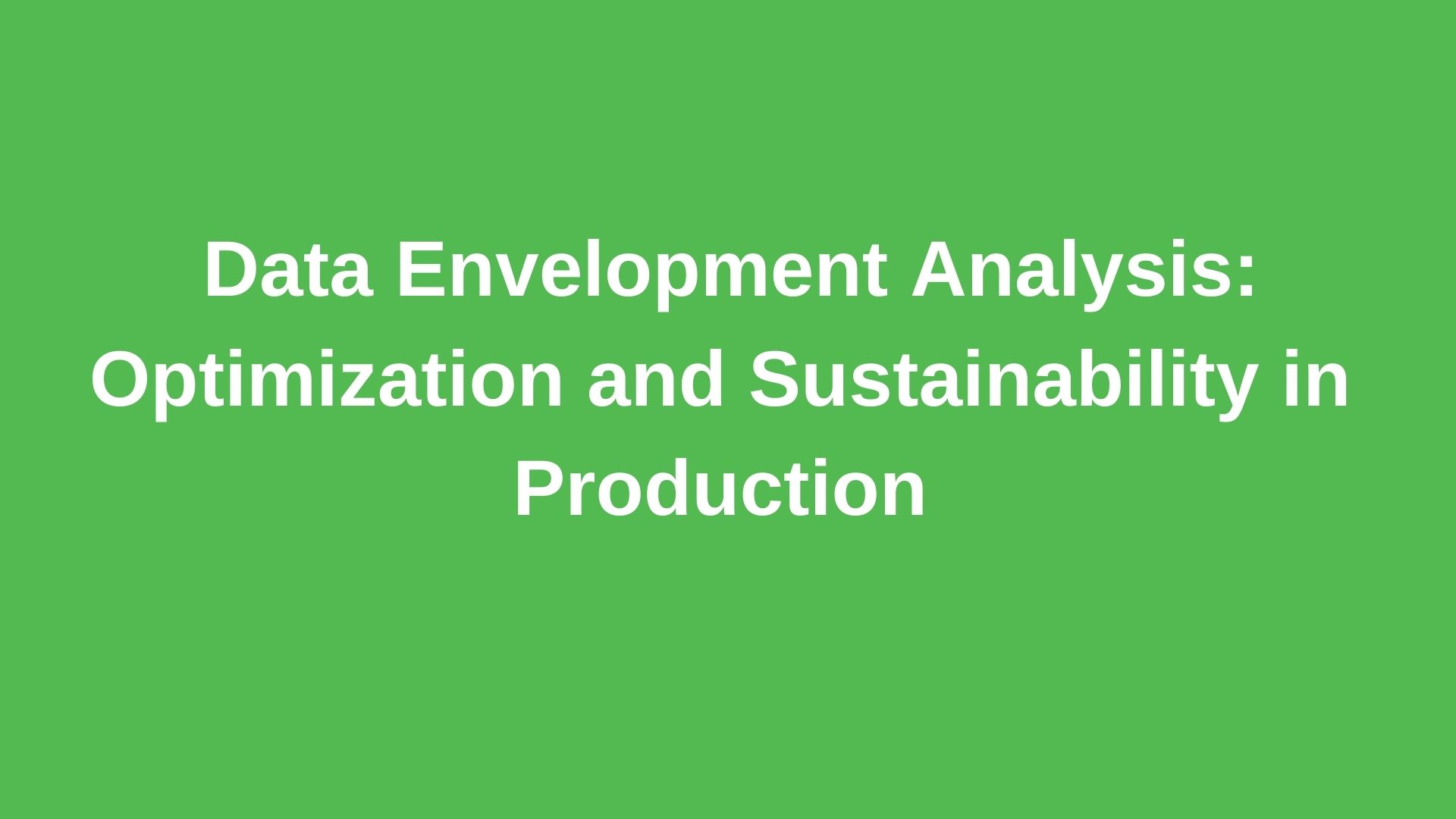Data Envelopment Analysis (DEA) is a powerful tool used to measure the relative efficiency of various units or processes. This study explores how DEA can be applied to optimize production and ensure sustainability. By measuring performance, DEA helps identify ways to optimize production, aiming for faster, higher-quality outputs while minimizing the consumption of raw materials, energy, and natural resources.
Managing energy consumption—both planned and actual—relies heavily on big data analysis. Tracking electricity costs, unit costs, and inefficiencies is crucial. With real-time monitoring and predictive models, businesses can achieve optimal production by aligning energy use with operational needs. This approach is relevant across various industries such as cement, chemicals, automotive, food production, and defense.
Performance measurement involves comparing set targets with actual outcomes, using input-output ratios and efficiency frontier methods. By planning energy consumption and monitoring it through hourly and daily data, companies can optimize production processes in line with energy price forecasts. Each variable in the database is reported to upper management through automated email alerts or notifications, ensuring proactive decision-making.
Cloud-based data architecture offers solutions for data compression, backup, and storage. The collected data is analyzed and visualized on platforms like Colab-Python, while performance metrics are shared with unit managers through warning signals. The goal is to achieve maximum production with minimal use of raw materials, natural resources, and energy.




